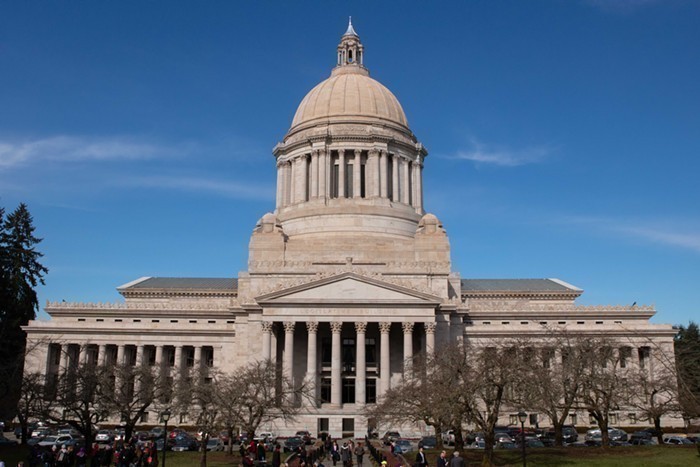Frog costumes. Lily pad twister. Techno and dirty house. Orient Express.
These ingredients make a Frog Rave–the most recent event from Peer Pressure, a new Seattle collective of DJs, dancers, and artists.
The group stands out with heavily themed monthly parties that earnestly lean into the absurd and emphasize what co-organizer Izzi Grasso calls “safer space” policies.
“Being involved in Peer Pressure, for me, is really about building community and building spaces I feel comfortable in and that my friends feel comfortable in,” they said.
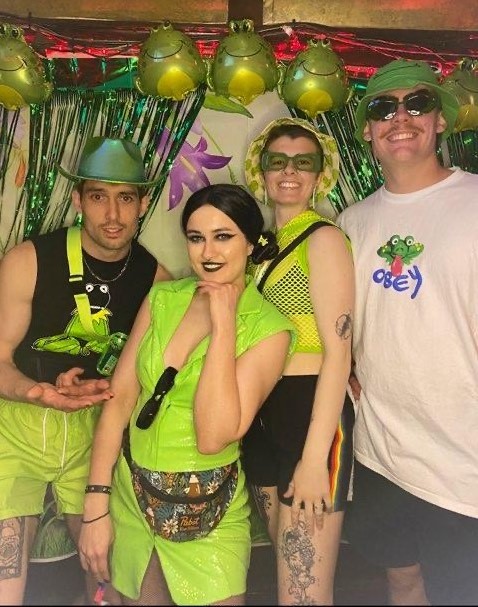
It all started in November of 2022 with four friends–Grasso, Brian McMann, Jersey Morningstar, and Brian Ingley–who wanted to throw a Halloween-themed birthday party for Morningstar. (Morningstar adores the holiday, but they work at a haunted house day-of.)
McMann said the party went so well that they kept throwing monthly birthday bashes for each other, adding new activities along the way such as Twister and a photo booth.
“We realized, ‘Oh, wow, we're actually really good at this!”’ said co-organizer McMann, who works as a bartender and DJs at Peer Pressure. “We started to gain a little traction, and I was like, ‘Ok, let's come up with bigger themes that we can go really hard for.”’
The choice to make Peer Pressure official–and charging a small entry fee–came from a desire to build momentum and pay its growing roster of DJs and performers.
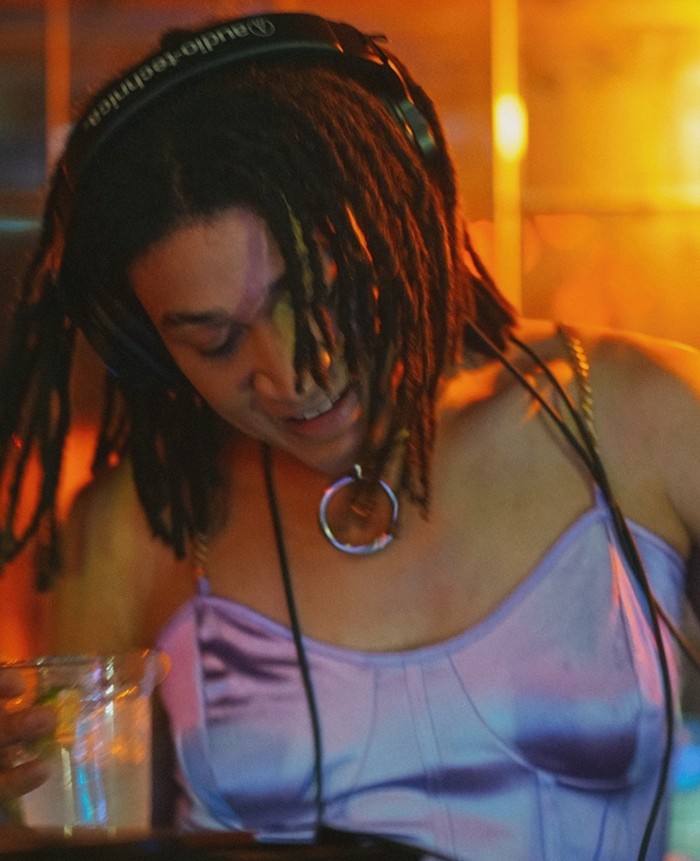
“We were really inspired by, and I think we learned about Orient Express through the ways that I think most people do now–the fact that Zac Levine started [the nightclub] Supernova there, and it is a very financially accessible venue,” Grasso said.
Accessibility is part of the magic. Peer Pressure is queer-friendly, cheap, and welcoming to neurodivergent people who might feel overstimulated by flashing lights and loud music. In most venues, taking a little break means stepping outside or absconding to a bathroom stall. Peer Pressure creates a space for people to sit with a coloring book or a fidget toy. Any bigotry or harassment will get you thrown out.
As fun as going out is, nightlife can also be dangerous when people aren’t looking out for one another. The group keeps Narcan and testing strips on site to make any drug safer. And any DJ booked for a Peer Pressure party must attend mandatory sexual harassment training taught by Grasso.
Like the parties, Peer Pressure conducts these trainings every month, and it just opened them to anyone in the wider nightlife community who wants to learn.
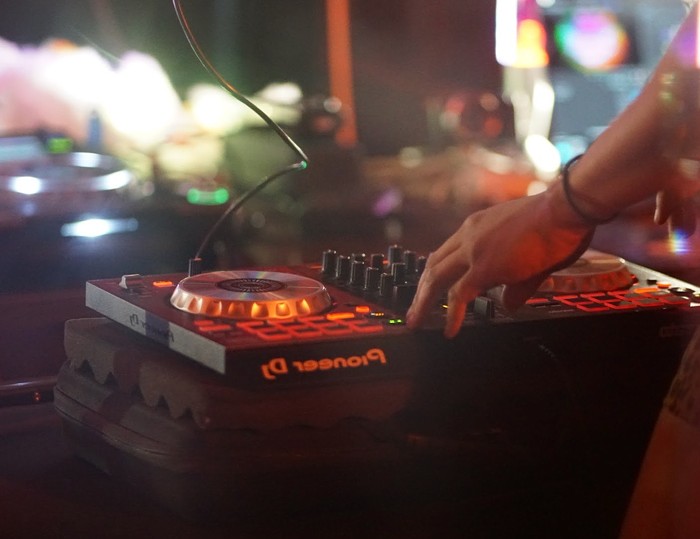
McMann said the lightbulb goes on for people during these training sessions.
“The feedback we're getting is like, ‘Wow, I didn't even know this conversation was there to have and like, what have I been missing this whole time?’”
Over the course of an hour, Grasso defines sexual violence, explores what it looks like in nightlife, and describes when to intervene and how to care for anyone who has been hurt.
They want to empower DJs to step in if they see leering, unicorn-hunting, or other types of sexual harassment and provide them with the tools they need to respond in a trauma-informed way before offering a victim options for what to do next.
In many nightlife spaces, harassment ends with a bouncer throwing out an aggressive person and leaving victims to fend for themselves. At Peer Pressure, they’ll ask someone what they need to feel safe.
“That’s a part that's often missing,” Grasso said. “Care for people who have experienced this type of thing.”
Co-organizer Jersey Morningstar, a 23-year-old former bouncer who works as a bartender, handles security for Peer Pressure. All security staff get the same sexual harassment training as teh DJs, as well as a docket of who isn’t allowed in and list of how to handle situations as they arise.
“Our main focus really is trying to create a safer nightlife scene,” they said. “That all starts with everyone being aware and informed on how to react and respond in these situations… We have two queer organizers. And entering spaces that aren't queer can sometimes feel like maybe everyone's not on your side.”
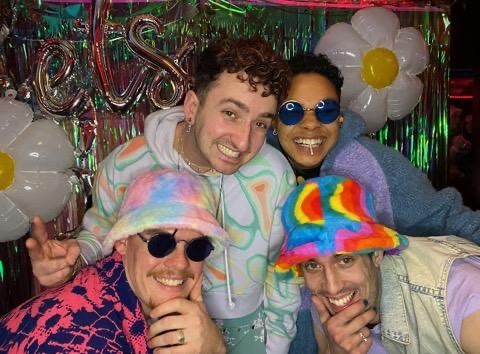
Morningstar said there have been no major issues at events so far, but until recently Peer Pressure parties were invite-only and attended by trusted friends and acquaintances. That’s why setting up this system from the start was so important.
McMann said if people are getting hurt, it isn’t really a good time.
“None of the music matters, none of the partying matters until we kind of reset and take a look at how we are treating each other in these spaces and ask why we are in these spaces,” he said.
He said in Seattle, many collectives and venues strive for a “too-cool-for-school” attitude where the idea of caring is lost, which isn’t fun in his opinion.
“We're trying to do the opposite of both of those things,” McMann said. “Leaning into that silliness and bringing what we think is serious to the forefront of the conversation… Original dance music parties in general were created for people who weren't allowed in the ‘normal’ kind of nightlife spaces. They had to create their own.”
Peer Pressure’s next party, “Pride Pregame: Love the Sinner, Love the Sin” is May 26. Follow them @peerpressure.sea.



